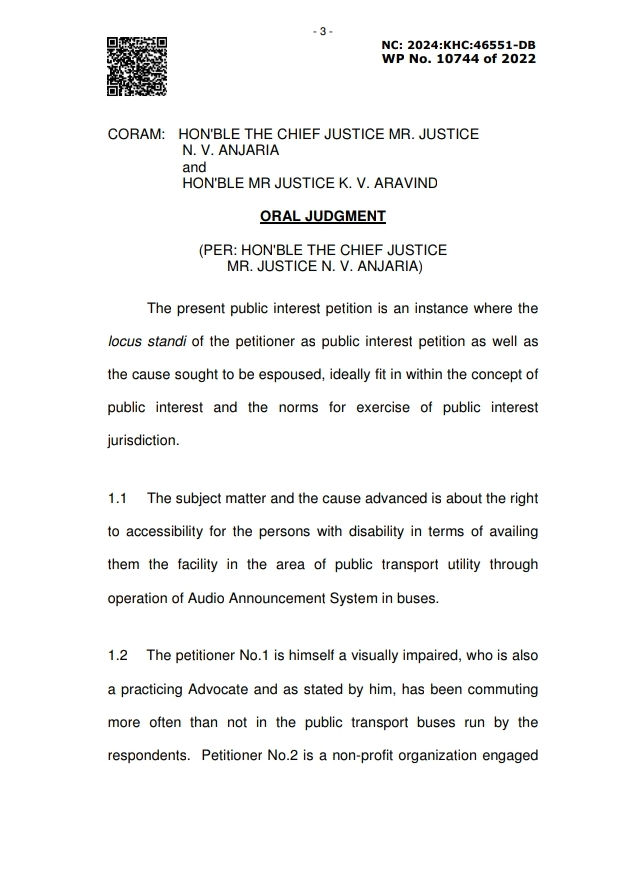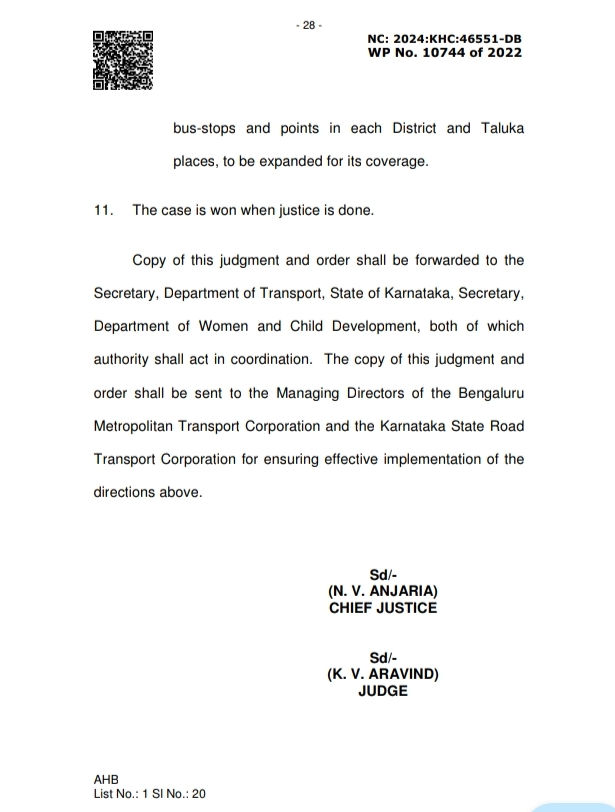The recent judgment by the Karnataka High Court in Writ Petition No. 10744 of 2022 marks a significant milestone in advancing accessibility rights for persons with disabilities, particularly the visually impaired. Filed as a public interest litigation (PIL), the case highlighted the abrupt discontinuation of the Audio Announcement System (AAS) in BMTC buses, a critical accessibility feature aiding visually impaired commuters.

The petition, spearheaded by advocate N. Shreyas, who is himself visually impaired, and supported by the Shreyas Global Trust for Social Cause, underscored the fundamental right to accessibility enshrined under Article 21 of the Constitution and the Rights of Persons with Disabilities Act, 2016.
The petition relied on Article 21 of the Indian Constitution (Right to Life with dignity) and provisions under the Rights of Persons with Disabilities Act, 2016 (Sections 3, 40, and 41) mandating equality, accessibility, and reasonable accommodation for persons with disabilities
The court not only acknowledged the systemic challenges faced by differently-abled individuals in public transport but also criticized the withdrawal of AAS as a violation of statutory mandates. While the respondents, including BMTC and KSRTC, defended their position citing ongoing repairs and future procurement plans, the court emphasized that accessibility is a non-negotiable obligation of a welfare state.
Court’s Observations:
Accessibility is a fundamental right and a core component of the Right to Life under Article 21.
The withdrawal of AAS violated statutory obligations under the PwD Act and principles of equality and non-discrimination.
The court acknowledged the respondents' efforts but stressed that accessibility must be prioritized and implemented comprehensively
With directives to reinstate AAS, adopt technological innovations, and deploy staff to assist at bus stops, the judgment reflects a progressive and inclusive approach, setting a precedent for prioritizing the dignity and independence of persons with disabilities in public infrastructure planning. This ruling serves as a timely reminder that accessibility is not a privilege but a fundamental right that must be actively safeguarded.
"Accessibility is not a privilege but a fundamental right. The Karnataka High Court's recent judgment mandates the reinstatement of the Audio Announcement System in BMTC buses, ensuring dignity, independence, and equal opportunity for visually impaired commuters—a landmark step towards inclusive public transportation." -Adv.M.R.Mishra

Directions Issued by the Court:
Reinstate AAS: Ensure the AAS is operational in all buses, except those slated for scrapping.
Loudspeaker Systems: Install speaker systems at bus stops for real-time announcements to assist visually impaired passengers.
Advanced Technology: Adopt innovative technological solutions to improve accessibility and earmark sufficient budget for such measures.
Staff Deployment: Deploy teams at major bus stops to guide and assist differently-abled passengers.
Timeline: Ensure statewide implementation of accessibility measures, including AAS, within two years

Thanks For Visiting!!

Comments